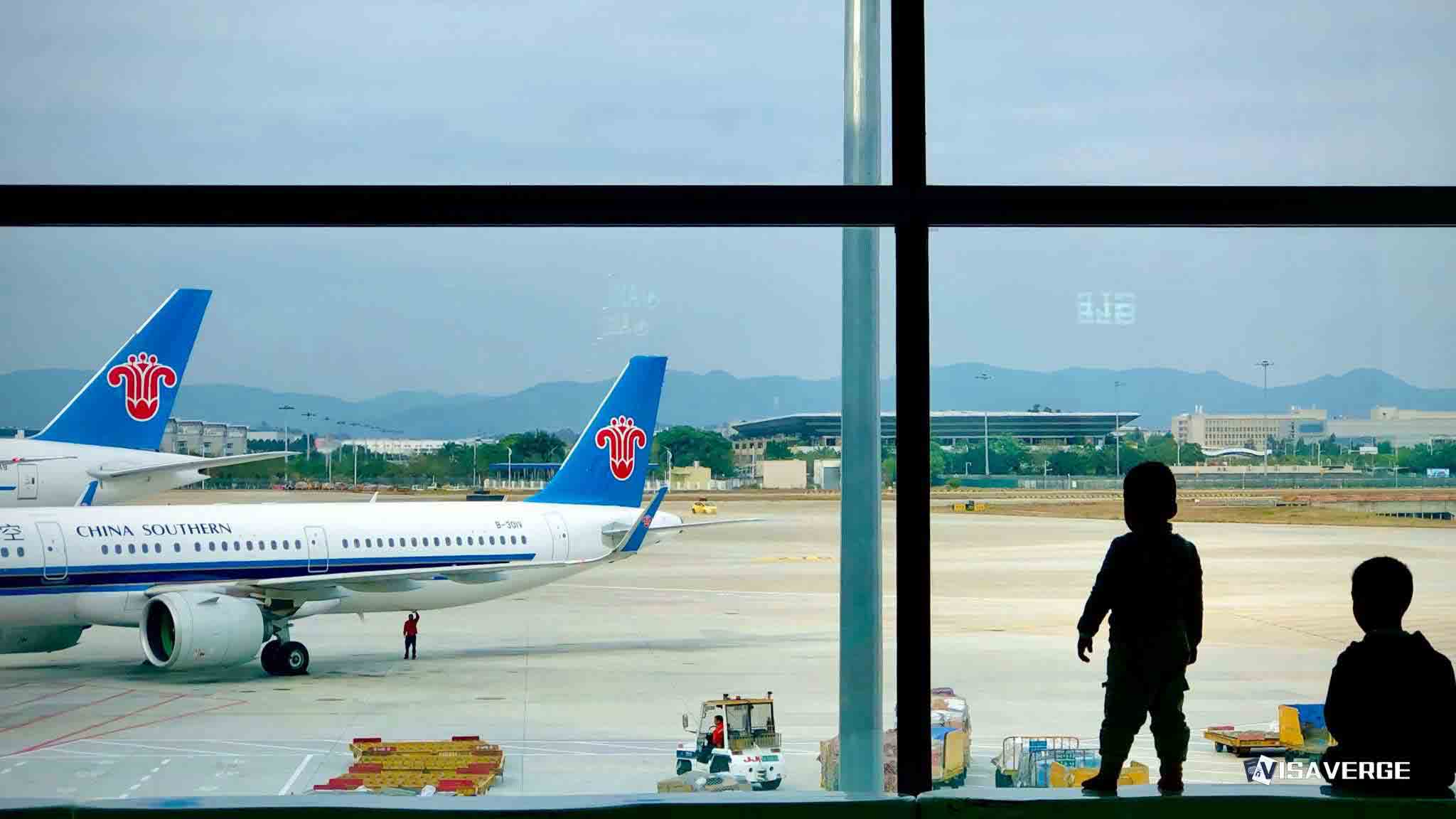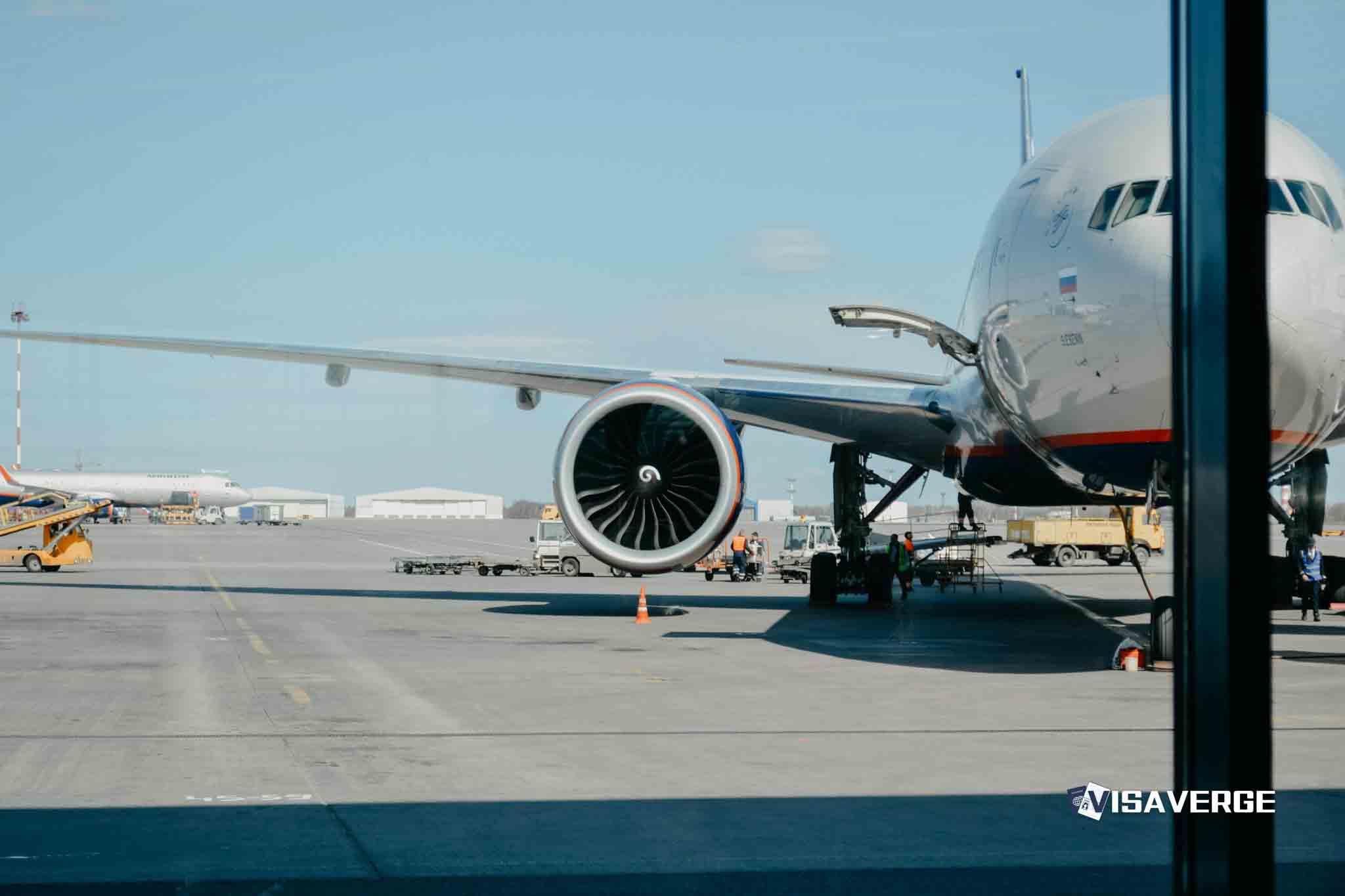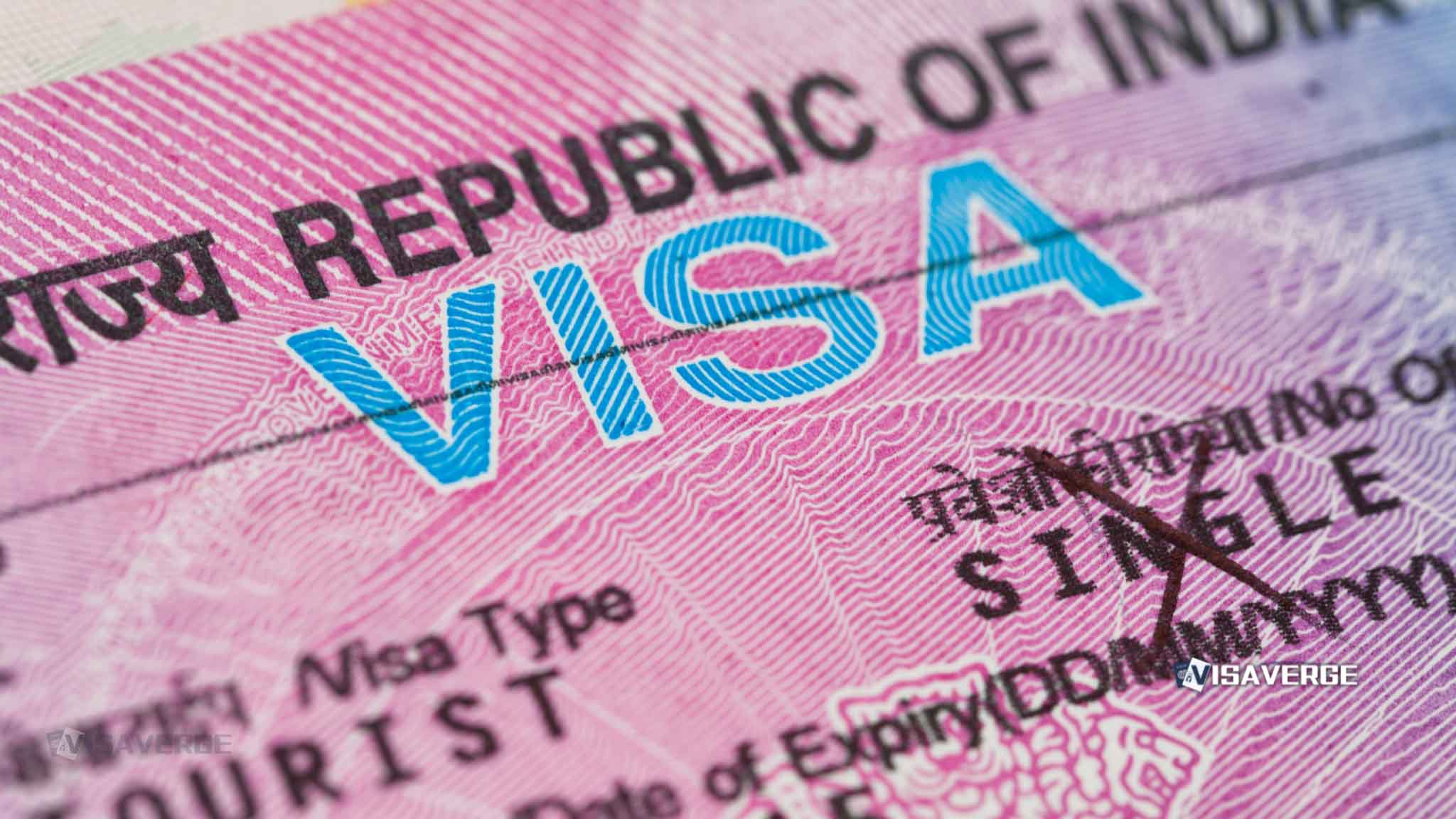Key Takeaways
• Air India cut 15% wide-body and 5% narrow-body flights due to Israel-Iran conflict until July 15, 2025.
• Emirates, Qatar Airways, Lufthansa suspended key Gulf and West Asia routes amid rising military tensions.
• Passengers face longer flights, delays, cancellations; airlines offer alternative flights, free rescheduling, and refunds.
A major travel alert has been issued as Air India, Emirates, Lufthansa, Qatar Airways, and several other leading airlines have suspended or rerouted key Gulf routes due to the rapidly escalating conflict between Israel and Iran. This sudden change, which began in mid-June 2025, has caused significant disruption for travelers, airlines, and the broader aviation industry. The closures of Iranian, Iraqi, and Israeli airspace have forced airlines to take longer routes, cancel flights, and adjust schedules, especially on the busy Gulf and West Asia corridors.
What’s Happening and Why: The Heart of the Disruption

Since June 2025, the skies over the Middle East have become a no-go zone for many airlines. The immediate cause is the sharp rise in military activity between Israel and Iran, which has led to widespread airspace closures. As a result, Air India, Emirates, and other major carriers have had to suspend or reroute flights that usually pass through these regions. The changes are expected to last until at least July 15, 2025, but the situation remains fluid and could change at any time.
Air India has announced a 15% reduction in its wide-body international flights and nearly a 5% cut in its narrow-body network. These reductions affect both domestic and international routes, with a particular focus on Gulf and West Asia flights. Emirates has canceled flights to and from Iraq, Jordan, Lebanon, and Iran. Qatar Airways has suspended services to Iran, Iraq, and Syria. Lufthansa and other European airlines have also halted flights to affected areas.
How Airlines Are Responding: Immediate Actions and Adjustments
Air India’s Response
Air India has taken several steps to keep passengers safe and manage its operations:
- Rerouting flights: No Air India flights are currently operating over Iran, Iraq, or Israel. The airline is also avoiding certain Persian Gulf airspace, which means flights to the UAE, Qatar, Oman, and Kuwait now take longer routes.
- Flight reductions: There is a 15% cut in wide-body international flights and a 5% reduction in narrow-body flights. Three routes have been suspended, and 19 others have reduced frequency.
- Passenger support: Air India is offering affected travelers alternative flights, free rescheduling, or full refunds. Passengers are being contacted directly and can also check updates on the Air India website.
Emirates, Qatar Airways, and Lufthansa
- Emirates: Has canceled flights to and from Iraq, Jordan, Lebanon, and Iran.
- Qatar Airways: Has temporarily suspended flights to Iran, Iraq, and Syria.
- Lufthansa: Has stopped all flights to and from Tehran. Other European airlines, such as Air France, Swiss, and KLM, have suspended flights to Tel Aviv.
US and European Carriers
American Airlines, United Airlines, Finnair, Air France-KLM, British Airways, and Air Canada have also suspended or rerouted flights to Dubai, Doha, and other Gulf hubs. This widespread action shows just how serious the situation has become for global air travel.
Which Routes Are Most Affected?
The impact is being felt most strongly on the Gulf routes, which are some of the busiest in the world for both business and leisure travelers. Here’s a closer look at the changes:
- Air India: Has suspended the Bengaluru–Singapore, Pune–Singapore, and Mumbai–Bagdogra routes (each with 7 weekly flights). Major trunk routes like Delhi–Mumbai have seen a drop from 176 to 165 weekly flights, and Mumbai–Kolkata from 42 to 30 weekly flights.
- Emirates and Qatar Airways: Flights to and from Iraq, Iran, Syria, Jordan, and Lebanon are canceled or suspended.
- Lufthansa and other European carriers: Flights to Tehran and Tel Aviv are suspended.
These changes are causing longer flight times, delays, and cancellations, especially for passengers traveling between India, the Gulf, Europe, and North America.
Why Are Airlines Taking These Steps?
The main reason is safety. When there is a risk of military conflict or missile activity, airlines must avoid flying over dangerous areas. Aviation safety experts say that rerouting and suspending flights is a standard way to protect passengers and crew. Airlines are also following government travel advisories and working closely with security experts to monitor the situation.
Another factor is the need for extra safety checks. For example, Air India is conducting additional inspections on its Boeing 787-8 fleet after a recent crash. Night curfews at some European and East Asian airports are also making it harder to adjust schedules quickly.
What Does This Mean for Passengers?
Longer Flights and Delays
Because airlines are avoiding closed airspace, many flights now have to take longer routes. This means:
- Longer flight times: Some flights are taking several hours more than usual.
- Delays and missed connections: Passengers may miss connecting flights, especially at busy Gulf hubs like Dubai and Doha.
- Cancellations and rebookings: Some flights are canceled outright, and passengers need to find new options.
What Should Passengers Do?
If you have a flight booked with Air India, Emirates, or another affected airline, here’s what you should do:
- Check your flight status: Use the airline’s website, mobile app, or customer service center for real-time updates.
- Look for airline messages: Airlines are contacting affected passengers directly to offer new flights, free rescheduling, or full refunds.
- Contact customer service: For Air India, you can call 1800 5691 444 (India) or +91 8062779200 (international) for help.
- Stay updated: The situation is changing quickly, so check for updates often.
Support and Compensation
Airlines are trying to make things easier for travelers by offering:
- Alternative flights on different routes or dates
- Complimentary rescheduling with no extra fees
- Full refunds if you choose not to travel
The Bigger Picture: Impact on the Aviation Industry
Operational Challenges
The rerouting of flights around the Gulf and West Asia is causing major headaches for airlines:
- Reduced aircraft availability: Longer routes mean planes spend more time in the air, so there are fewer aircraft available for other flights.
- Increased costs: Airlines have to pay more for fuel and crew time.
- Logistical problems: It’s harder to keep flights on schedule, especially with night curfews and extra safety checks.
Disruption of Global Travel
The Gulf region is a key hub for international travel. Dubai, Doha, and Abu Dhabi are major transit points for flights between Asia, Europe, Africa, and North America. When these routes are disrupted, it affects travelers all over the world.
Industry analysts say this is one of the most serious disruptions to Gulf routes in years. Even airports that are usually very stable, like Dubai and Doha, are feeling the impact.
Ripple Effects
The problems don’t stop with airlines and passengers. There are also wider effects:
- Cargo and supply chains: Many goods are shipped by air through the Gulf. Delays and cancellations can affect businesses and supply chains worldwide.
- Tourism and business travel: Fewer flights mean fewer tourists and business travelers, which can hurt local economies.
- Higher prices: With fewer flights and more demand, ticket prices may go up.
Background: How Did We Get Here?
The current crisis began with Israeli airstrikes on Iranian military and nuclear sites. Iran responded with threats and closed its airspace, followed by similar moves from Iraq and Israel. This has created a large block of closed airspace right in the middle of some of the world’s busiest flight paths.
While the Middle East has seen airspace closures before, the current situation is different because it affects so many major transit hubs at once. In the past, airlines have had to reroute flights around Ukraine, Syria, or parts of the Gulf, but rarely has the disruption been this widespread.
What Are the Experts Saying?
Aviation safety experts agree that the current measures are necessary to keep people safe. They point out that airlines have well-established procedures for dealing with conflict zones, including rerouting flights and suspending operations when needed.
Industry observers warn that if the conflict gets worse, even more airspace could be closed. This could lead to even greater disruption, not just for air travel but also for global shipping and trade. For example, if Iran closes the Strait of Hormuz, it could affect both aviation and shipping routes worldwide.
According to analysis by VisaVerge.com, these disruptions are among the most significant in recent memory for the Gulf region, and travelers should expect ongoing changes as the situation develops.
What Are Governments Doing?
Governments are watching the situation closely and issuing travel advisories for their citizens. Some have restricted access to key airports or advised against travel to certain countries. Airlines are working with government agencies to get the latest information and adjust their operations as needed.
What’s Next? The Future Outlook
The situation remains highly uncertain. Airlines and authorities are monitoring developments hour by hour. If the conflict between Israel and Iran continues or spreads, more airspace could be closed, and more flights could be affected.
Airlines are making contingency plans and staying in close contact with security experts. They are ready to make further changes if needed to keep passengers and crew safe.
Travelers should be prepared for more changes, including possible last-minute cancellations or rerouting. Flexibility and staying informed are key.
Practical Guidance for Affected Travelers
If you are planning to travel on Gulf routes or through West Asia in the coming weeks, here are some steps you can take:
- Check your flight status regularly: Use your airline’s website or app for the latest updates.
- Sign up for alerts: Many airlines offer SMS or email alerts for flight changes.
- Have a backup plan: Be ready to change your travel dates or routes if needed.
- Keep important documents handy: Make sure you have your passport, visa, and any other required documents ready in case you need to rebook quickly.
- Know your rights: Airlines are required to offer refunds or alternative flights if your journey is canceled due to these disruptions.
For official travel advisories and the latest updates on airspace restrictions, you can visit the International Civil Aviation Organization (ICAO) website, which provides authoritative information for travelers and airlines.
Summary Table: Major Airline Actions (June 2025)
| Airline | Action Taken | Affected Regions | Effective Until |
|---|---|---|---|
| Air India | 15% wide-body, 5% narrow-body reduction; rerouting | Gulf, West Asia, Europe, N. America | At least July 15, 2025 |
| Emirates | Suspended flights | Iraq, Jordan, Lebanon, Iran | Ongoing |
| Qatar Airways | Suspended flights | Iran, Iraq, Syria | Ongoing |
| Lufthansa | Suspended flights | Tehran | Ongoing |
| US/European carriers | Suspended/rerouted flights | Dubai, Doha, Gulf hubs | Varies (some until June 22) |
Key Takeaways
- Air India, Emirates, and other major airlines have suspended or rerouted key Gulf routes due to the Israel-Iran conflict and airspace closures.
- Air India has cut 15% of its wide-body international flights and nearly 5% of its narrow-body network until at least July 15, 2025.
- Passengers are facing longer flight times, delays, cancellations, and the need to rebook or seek refunds.
- Airlines are offering support, including alternative flights, free rescheduling, and full refunds.
- The situation is changing quickly, and travelers should check for updates regularly.
- The disruption is affecting not just passengers, but also global supply chains, tourism, and business travel.
Final Thoughts
The current crisis in the Middle East has created one of the most serious disruptions to air travel in the Gulf and West Asia in recent years. Airlines like Air India, Emirates, and Qatar Airways are doing everything they can to keep passengers safe and minimize inconvenience, but the situation remains unpredictable. If you are traveling on Gulf routes, stay informed, be flexible, and reach out to your airline for the latest information and support.
For more details and real-time updates, visit your airline’s official website or contact their customer service. Stay safe, and be prepared for possible changes to your travel plans as the situation develops.
Learn Today
Wide-body flights → International flights operated using large aircraft with two aisles for more passengers and cargo.
Narrow-body flights → Flights using single-aisle aircraft, typically for shorter or regional routes.
Airspace closure → Government or military restriction banning aircraft from flying over certain territorial skies due to safety risks.
Rerouting → Changing an aircraft’s flight path to avoid restricted or dangerous airspace.
Flight rescheduling → Adjusting flight departure or arrival times, often due to operational changes or disruptions.
This Article in a Nutshell
Airlines like Air India and Emirates face severe disruptions from the Israel-Iran conflict. Flight cancellations and reroutes are widespread, affecting Gulf routes and causing delays. Travelers must stay informed and flexible as airlines respond with reductions and support amid this unfolding aviation crisis.
— By VisaVerge.com













